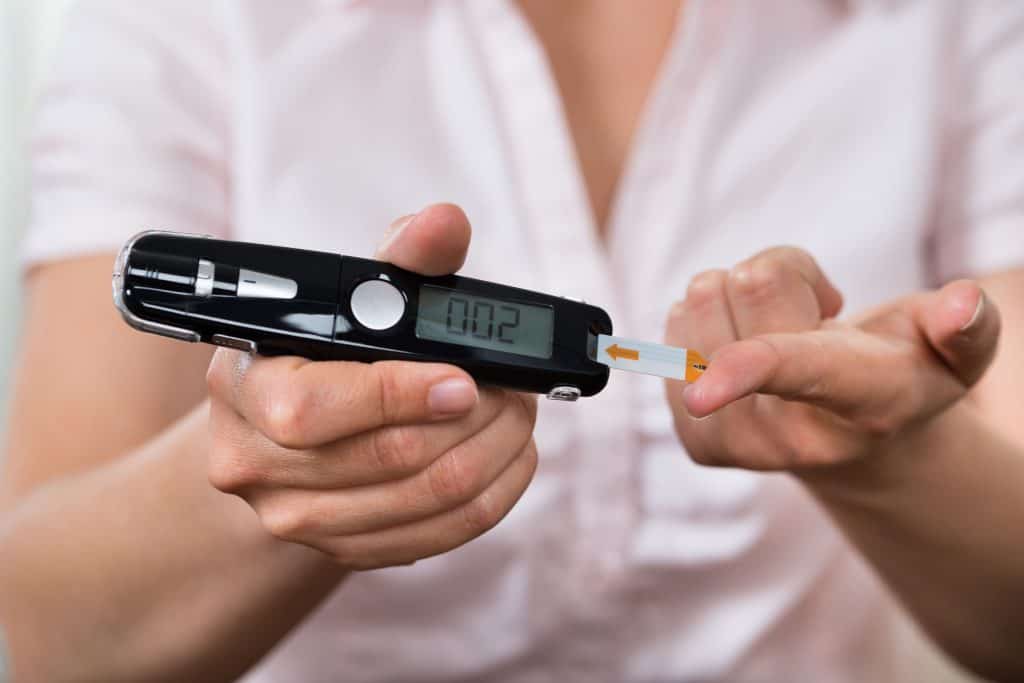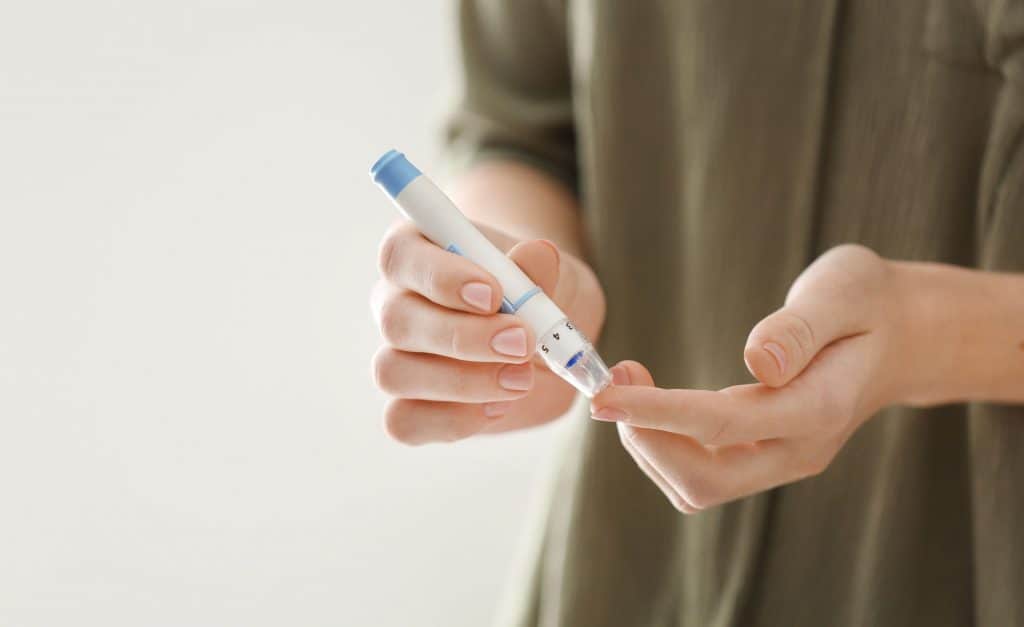Why Do I Have High Blood Sugar in the Morning? Causes and Prevention
Posted by Prescription Hope - See Editorial Guidelines (Last Updated On: Tue Apr 25 2023)
Have you ever woken up with unexplainable high blood sugar in the morning? It is perhaps one of the most frustrating things for those contending with diabetes.
There could be a few different explanations as to why you are waking up with high blood sugar in the morning. So, we’ll discuss the different reasons in this article and the ways you can prevent it. First, here is a quick summary to get you started.
Why Do I Have High Blood Sugar in the Morning? There are four main potential reasons as to why your blood sugar is high in the morning. They include the dawn phenomenon, Somogyi effect, your liver releasing more glucose, or the type of food you consumed the night before. You can prevent this from occurring by adjusting your insulin regimen and making changes to your lifestyle.
Now that you have a basic understanding, let’s get into the details of why your blood sugar is high in the morning.
Causes of High Blood Sugar in the Morning

There are a few potential factors that can cause high blood sugar in the morning. Below is each factor with a description of how they can lead to morning hyperglycemia.
Dawn Phenomenon
The dawn phenomenon, sometimes called the dawn effect, is most often given as the explanation for high blood sugar in the morning. It is defined as the release of hormones during the early morning hours, which leads to the liver releasing glucose into the bloodstream. The release of these hormones typically occurs between 2 a.m. and 8 a.m. The hormones consist of growth hormone, cortisol, glucagon, and epinephrine.
The purpose of the release of these hormones in the early morning is to prepare our bodies to wake up. It follows a person’s circadian rhythm. Those that do not have diabetes do not have a problem with this, as their pancreas will recognize the rise in glucose and produce insulin to use the glucose for energy. However, those with diabetes do not have enough insulin or lack insulin sensitivity, leading to high blood sugar in the morning.
Somogyi Effect
The Somogyi effect is often confused with the dawn phenomenon, but it is slightly different. The effect is defined as a person’s blood sugar going low in the middle of the night, followed by a spike in blood sugar, which isn’t recognized until the morning. When a person’s blood sugar drops, their body typically begins releasing hormones, such as glucagon and epinephrine, to help bring blood sugars back up. The release of hormones combined with the patient consuming carbohydrates to prevent severe hypoglycemia can cause a rebound effect, leading to high blood sugar in the morning. The Somogyi effect most often occurs in those that are insulin-dependent.
Liver Releases Glucose
The liver serves as a storehouse for glucose for when the body needs it. This factor is similar to the dawn phenomenon, but there’s a different concept behind it. As mentioned above, the dawn phenomenon occurs typically somewhere between 2-8 a.m.
So, what if you wake up right around 8 a.m., and your blood sugar is relatively normal, but then you begin to see a quick spike in your blood sugar later in the morning? This is due to you beginning your day without having any food or drink to provide you with energy. So, your body is like, “wait, I need energy to start functioning.” So, your liver begins dumping glucose into the bloodstream. Normally the body’s cells will begin to uptake the glucose, but if you have diabetes, the process won’t work appropriately.
Thus, if you have a CGM, you may notice your blood sugar levels start to increase gradually and begin to spike more and more after you have woken up.
Late-Night Meal
The last factor that can lead to high blood sugar in the morning is a late-night snack or dessert. Maybe you didn’t count your carbs correctly, and you didn’t give yourself enough insulin. So, your blood sugar gradually goes up through the night without you noticing until the morning. I have been a victim of this more than once, especially when it comes to cold foods, such as ice cream. Typically, cold foods, such as ice cream, take longer to absorb and have a delayed effect on your blood sugar. So, you check your blood sugar before heading to bed, and it’s normal, but then starts spiking an hour or two later. Any insulin that you did take has already had its full effect, so you no longer have the proper amount of insulin to bring your blood sugars back into range.
How to Prevent High Blood Sugar in the Morning
If you have been continuously waking up with high blood sugar in the morning, then you should discuss possible solutions with your doctor. Here are some tips and solutions you may be able to implement into your life to prevent morning hyperglycemia.
Check Your Blood Sugar

The first step in moving towards a solution for high blood sugar in the morning is checking your blood sugar levels often. This means that you may need to set an alarm in the middle of the night to get up and check your blood sugar. Checking it right before bed, around 2 a.m., and right away in the morning will help you and your doctor determine the cause of your high blood sugar in the morning. Using a CGM will replace the need to get up and manually check your blood sugar during the night, as the CGM tracks and records trends without you needing to do anything. Checking your blood sugar often also allows you to make accurate adjustments to your insulin delivery.
Adjust Basal Rate
If you are using an insulin pump, then you can make adjustments to your basal rate. It is important to note here that you should only make adjustments to your insulin delivery based on your doctor’s instructions. The basal rate is the continuous drip of insulin a patient gets from their insulin pump. Most pumps have settings allowing you have your basal rate automatically adjust doses based on the hours you have programmed it to.
So, patients can set their insulin pumps to automatically increase their basal rate around 3 a.m. or whenever they notice their blood sugar levels starting to rise. Making adjustments to your basal rate is particularly helpful if you are suffering from the dawn phenomenon.
Take Insulin When You Wake Up
If your blood sugar is high in the morning due to your liver dumping glucose in the bloodstream, then you may require insulin right when you wake up. Do not inject insulin without first checking your blood sugar and consulting your doctor and the exact solution.
However, this is the same concept as giving yourself a correction dose of insulin at any other part during the day. You should check your blood sugar at 30-60 minute intervals in the morning and track the trend over the next few days. Doing this will help you determine if and how much insulin you need in the mornings.
Stop Late Night Snacking
If late-night snacking is the cause of your high blood sugar in the morning, then you should take steps to avoid this. Eating a healthy dinner and holding yourself accountable when it comes to avoiding sugary desserts is crucial for stabilized blood sugar levels. Having a low-carb protein shake when you get hungry can be helpful in satisfying your hunger without spiking your blood sugar.
Daily Physical Activity
Daily physical activity is another possible solution for preventing high blood sugar in the morning. Performing physical activity consistently increases your insulin sensitivity, helping prevent hyperglycemia in the morning.
Drink Water
Patients waking up with high blood sugar in the morning are often dehydrated. You aren’t drinking any water through the night, leading to a potential greater concentration of glucose in the bloodstream. Suffering from the dawn phenomenon or some other issue that can cause spikes in blood sugar will only cause dehydration to become worse. So, drinking a big glass of water first thing in the morning can help lower the concentration of glucose in the bloodstream. Drinking enough water the night before can also help with hydration through the night, preventing possible high blood sugar levels.
Conclusion
Suffering from high blood sugar in the morning is extremely irritating for many patients with diabetes. So, we hope this has given you some insightful advice for keeping your blood sugar levels stable. Again, always consult your doctor regarding your specific condition and treatment options.
If you are struggling to afford the medication you need, then Prescription Hope can help. We work directly with pharmaceutical companies to provide individuals with the medicine they need at a set, affordable cost. Enroll with us and start paying just $60.00 a month through Prescription Hope’s medication access service for each prescription drug .

